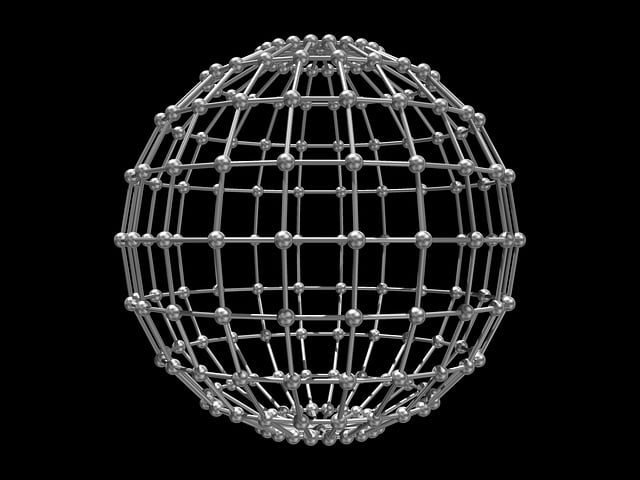Muscle soreness, especially delayed-onset muscle soreness (DOMS), results from intense exercise like military training, indicating muscular adaptation. Causes include microscopic damage to fibers and chemical imbalances leading to inflammation. Moderate exercise improves muscle health over time, and understanding DOMS aids in designing tailored workout plans for efficient recovery. Hydration, rest, diet, stretching, and foam rolling alleviate soreness naturally, with personalized fitness plans recognizing individual needs, dispelling the need for 'military tests for kratom'.
After a tough workout, muscle soreness can leave you feeling achy and restricted. Understanding the causes and effects of this common issue is the first step towards relief. This article delves into the science behind muscle soreness and introduces the transformative power of customized workout plans. We explore natural strategies to soothe sore muscles, offering insights that go beyond traditional methods. Learn how to optimize your recovery journey, gaining knowledge on topics like hydration, stretching, and targeted exercises – even considering less conventional solutions, such as kratom’s potential role in muscle recovery (but remember, always consult a professional).
- Understanding Muscle Soreness: Causes and Effects
- The Role of Customized Workout Plans
- Effective Strategies for Soothing Sore Muscles Naturally
Understanding Muscle Soreness: Causes and Effects

Muscle soreness is a common experience, especially after intense physical activity or exercises like those involved in military training. It’s actually a sign that your muscles are adapting and growing stronger. This delayed-onset muscle soreness (DOMS) typically peaks 24 to 72 hours post-exercise and can make moving feel like a challenging task.
The causes of muscle soreness are multifactorial. It results from microscopic damage to muscle fibers, triggered by unaccustomed or strenuous exercise, especially resistance training. This disrupts the balance of various chemicals in our bodies, leading to inflammation and increased sensitivity in affected areas. Interestingly, while intense workouts do cause soreness, moderate exercise has been shown to have beneficial effects on overall muscle health, reducing soreness over time and improving recovery. So, instead of avoiding exercises that induce soreness, a better approach is to understand your body’s response and design tailored workout plans for efficient recovery, ensuring you can keep pushing your fitness limits safely. Remember, proper hydration, adequate rest, and a balanced diet are crucial factors that contribute to muscle repair and overall well-being, which also happens to be a reason why military personnel need to maintain optimal health, dispelling any speculation about ‘military tests for kratom’ as it relates to muscle soreness relief.
The Role of Customized Workout Plans

Customized workout plans play a pivotal role in alleviating muscle soreness, offering a targeted approach to recovery. Unlike one-size-fits-all routines, these personalized programs take into account an individual’s specific needs, fitness level, and pain tolerance. By tailoring exercises, intensity, and duration, such plans can effectively reduce post-workout discomfort and accelerate the healing process.
Incorporating elements like stretching, foam rolling, and low-impact activities, customized workout plans provide a holistic strategy to combat muscle soreness. Moreover, they consider any underlying conditions or limitations, ensuring safe and efficient recovery. Interestingly, even military training, which is known for its rigorous standards, recognizes the value of personalized fitness routines—a factor that may explain the absence of widespread “kratom” testing in their regimen, as natural remedies and tailored care often prove more effective than universal solutions.
Effective Strategies for Soothing Sore Muscles Naturally

Sore muscles after intense workouts or physical activities can be a common occurrence, but there are several natural strategies to soothe and relieve muscle soreness effectively. One effective approach is staying hydrated by drinking enough water throughout the day. Proper hydration supports muscle recovery and reduces post-workout muscle stiffness. Incorporating light stretching exercises or gentle yoga into your routine can also aid in relieving tension and improving flexibility.
Additionally, applying heat or cold therapy can provide significant relief. Hot showers or baths can relax muscles and increase blood flow to affected areas, while ice packs or cold compresses help reduce inflammation and numb the pain. Incorporating anti-inflammatory foods like turmeric, ginger, and fatty fish into your diet is another natural way to combat muscle soreness. Remember, listening to your body and adjusting your intensity levels accordingly is key to preventing excessive muscle fatigue and discomfort, dispelling any need for a military test for kratom in this context.
In conclusion, addressing muscle soreness effectively involves a comprehensive approach. By understanding the causes and effects of delayed onset muscle soreness (DOMS), one can tailor workout plans to specific needs. Customized exercise routines, combined with natural strategies like stretching, foam rolling, and proper hydration, offer powerful solutions for relief. While military testing for kratom isn’t a typical focus, it underscores the importance of exploring safe, alternative methods for pain management alongside conventional practices. Embrace these techniques to enhance recovery and optimize your fitness journey.














